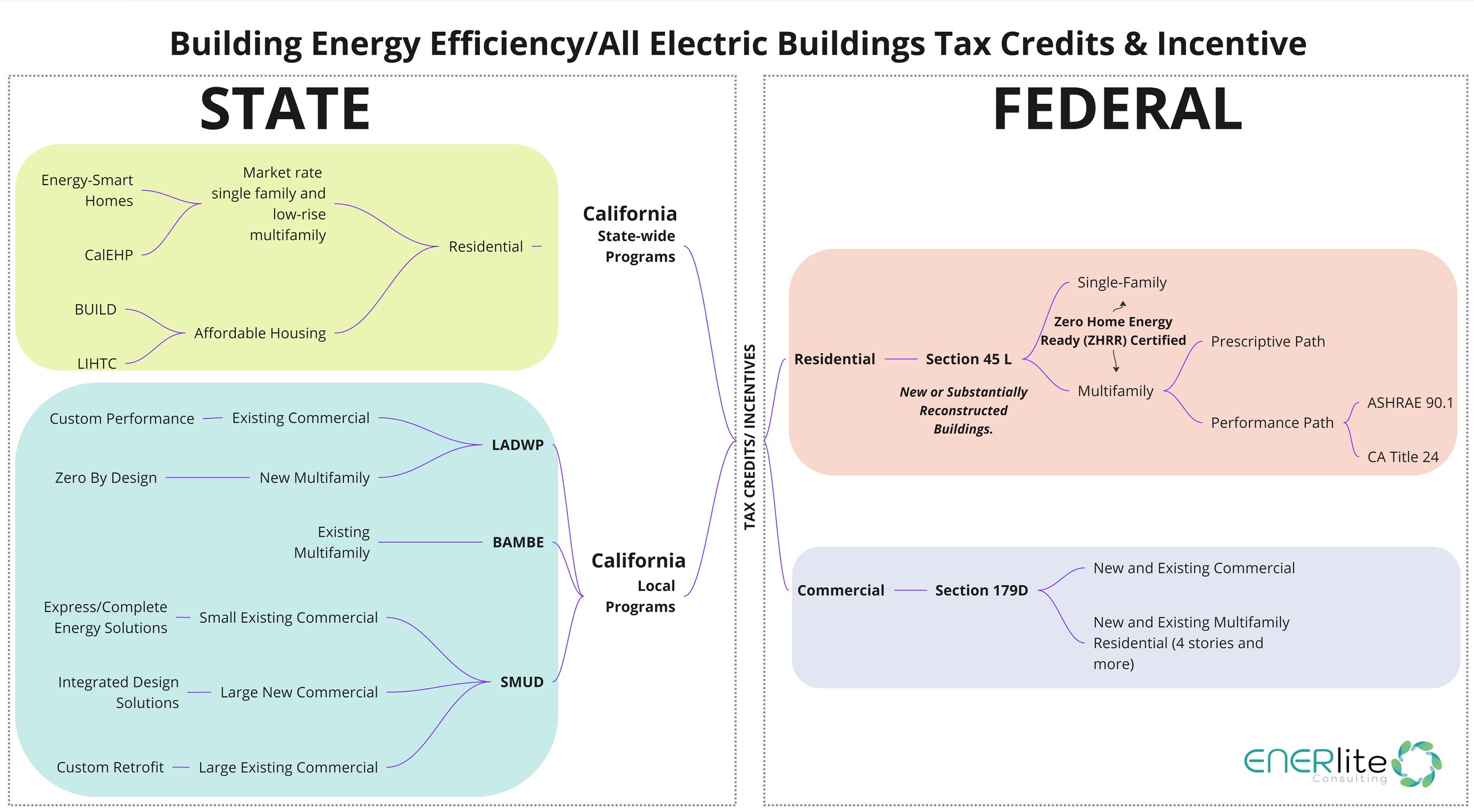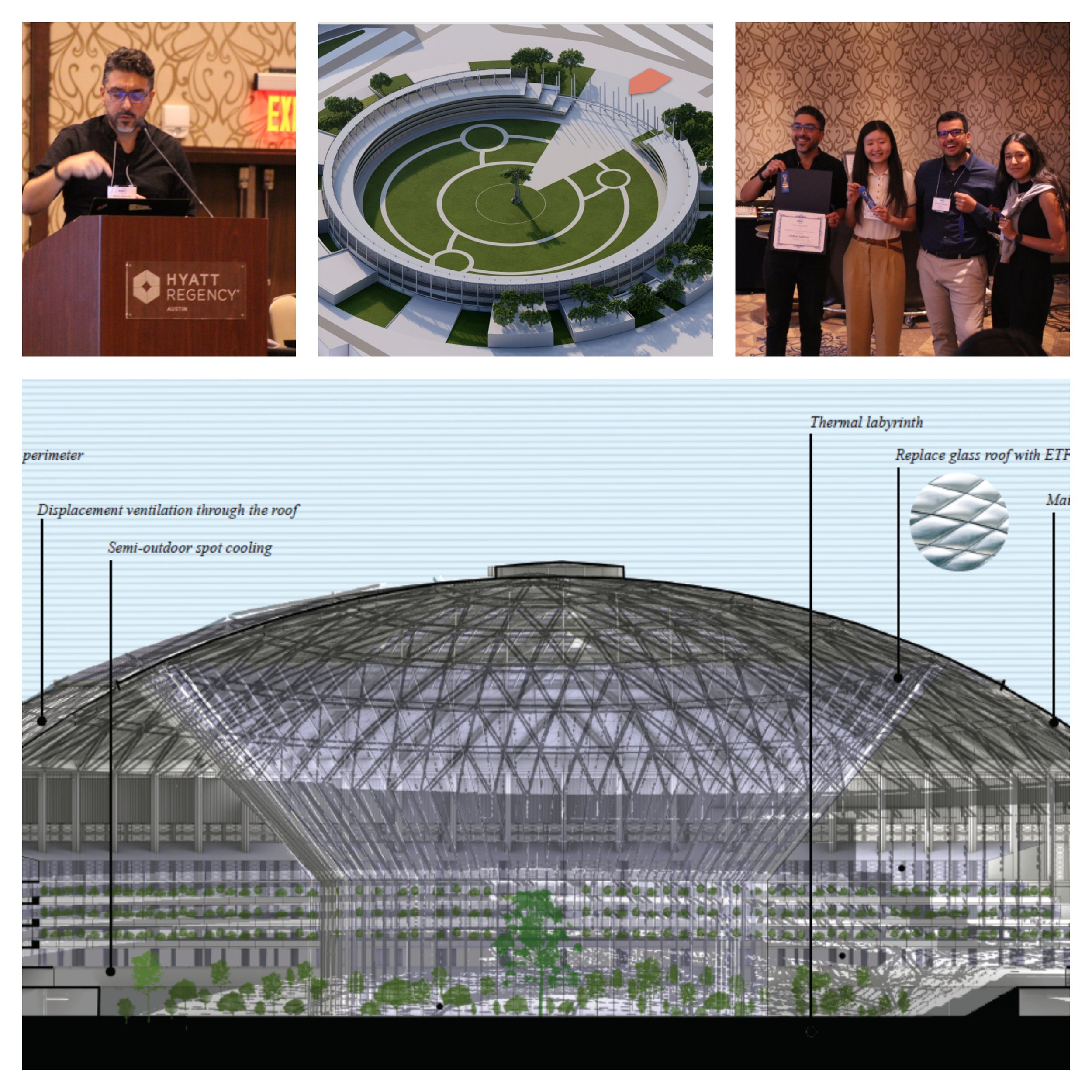
How Businesses Should Adapt to Climate Change and Transforming Energy Markets

Federal Buildings Lead the Way to Carbon Emissions Reduction by 2050

Setting the Foundations: Why Sustainability in Schools Matters and How to Start the Process
Implementing sustainable strategies in schools enables children to learn more about the environment and how to protect it early in life. Such schools prioritize energy efficiency, implement passive design strategies, and integrate renewable energy resources such as solar PV panels, serving as educational institutions and real-world examples of environmental stewardship. These initiatives teach students the importance of sustainability, inspiring them to adopt eco-conscious practices and contribute to preserving our planet for generations.

Meeting the CALGreen LID Requirement in Dense Urban Areas
ENERlite Consulting provided CALGreen certification consultation for the Melrose Triangle Building, implementing creative solutions to meet the CALGreen requirement for LID (Low Impact Development) stormwater pollution prevention in dense urban areas.

California's New Emissions Reporting Mandate for Large Businesses
In a landmark move, California recently enacted the Climate Corporate Data Accountability Act, impacting public and private enterprises with revenues exceeding $1 billion.
The mandate encompasses scope 1, 2, and 3 emissions, covering direct, indirect, and other indirect greenhouse gas (GHG) emissions.

Driving Toward a Greener Future: California Embraces Electric Vehicles in Building Codes
California governors’ executive orders have championed zero emissions vehicles (ZEVs), advancing California’s mission to widely adopt electric vehicles (EVs). California has seen several regulations in the 2019 and 2022 California Green Buildings Standards Codes (CALGreen) that have further promoted EVs and EV infrastructure.

Reducing Carbon Footprints with Prefabricated Modular Construction
Modular prefabricated constructions reduce the carbon emissions associated with new constructions. Prefabrication offers a multifaceted approach to reducing embodied carbon emissions.

LEED Energy Update and What It Means for Your Projects
LEED v4 will be updated to LEED v4.1 effective March 1, 2024, impacting all projects that register on or after that date. LEED projects registered on or after March 1, 2024, may face longer timelines and increased costs due to these new requirements. Contact ENERlite Consulting to register your LEED project before March 1, 2024, to avoid these consequences.

CALGreen Promotes Embodied Energy Reduction
Embodied Energy will be a part of the CALGreen requirements starting July 1, 2024. ENERlite Consulting performs embodied carbon analysis to help our clients toward decarbonization goals.

Section 45L Tax Credits For Energy-Efficient Residential Buildings
Explore the extensive federal tax incentives for energy efficiency across residential projects.

Navigating Energy Efficiency Tax Credits and Incentives
Explore the extensive federal, statewide, and local tax incentives for energy efficiency across residential, commercial, and renewable energy projects.

Building Energy Models: What Are Black-Box, White-Box, and Gray-Box Models?
Building Energy Models (BEM) are crucial tools in the energy-efficient design of buildings.

2023 ASHRAE LowDown ShowDown Recap
ENERlite's CEO, Ladan Ghobad, Ph.D., was selected to serve as a Judge at the 2023 LowDown ShowDown high-performance building design competition in Austin, Texas!

Ladan Ghobad, CEO of ENERlite Consulting Inc, is a 40 Under 40 Class of 2021.

ENERlite Consulting’s Limited-Time Offer for Energy Model Calibration to Test Its Tool

ENERlite Consulting won the 2021 DOE’s Small Business Grant.

AIA CA COTE Routable: Building Performance Simulation Strategies, Benefits and Challenges.

Building Performance Simulation Tools Survey is Out!

Daylighting in Louis Kahn’s Museums

